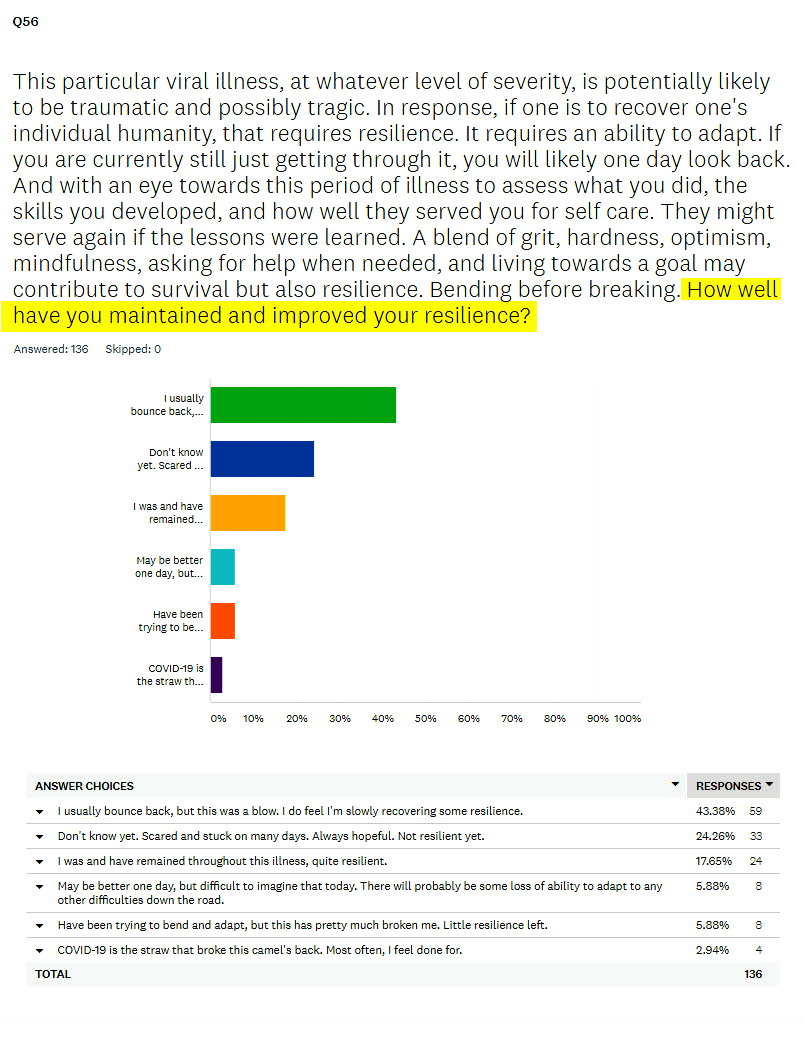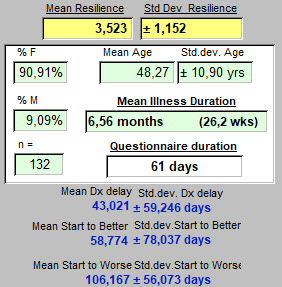Q, 56 - Resilience and "long-term" COVID-19
LTCOVID.com
Thanks for visiting!
To translate this page, select your
language from the dropdown menu below:
No respondents skipped this question.
The results are here sorted by frequency of response.
The question was presented as seen below.
While numbers were not shown to respondents, this once again permitted a 0 to 5 Likert Scale and quantifying the responses and calculating mean values.
The result for this sample of 132 was as follows, presented with results for other variables:
Expressed mathematically above in the yellow fields, this level of resilience for the entire sample of respondents is on average half way between "Don't know yet. Scared and stuck on many days. Always hopeful. Not resilient yet," (#3) and "I usually bounce back, but this was a blow. I do feel I am slowly recovering some resilience." (#4, on the Likert scale).
Simply summarized: those who present with "long-term" COVID-19 have suffered a blow to those human elements that contribute to recovery from illness. Accepting that, is important for the patient eager for recovery, and often impatient and frustrated when "forcing it" doesn't seen to work. That frustration was quite evident in the responses regarding emotional symptoms.
Equally important for any provider of health-care services, this also gives an estimate of what can be expected and at what rate, in response to any treatment plan.
This concept of resilience while faced with this illness of long duration. will appear again.
It permits comparisons of resilience and the ability to "bounce back" of various sub-groups. (E.g., gender differences, age groups, in relation to nutritional supplements, smokers and non-smokers, those of different body size, etc.).
But in the meantime, here is a presentaion by an appropriate professional about viewing and categorizing "stress," but also about developing resilience in the setting of COVID-19 and its "long-term" variant. It should be shared as well with those on the "Doctor side" of the exam table and with respondents to our questionnaire and those identifying with them.
<<<< Previous page
Q. 57 - Respondent's country >>>>>
A découvrir aussi
- Q. 20 - Date diagnosed with the COVID-19 illness
- Q. 37 - Symptoms commonly experienced BEFORE developing "long-term" COVID-19
- AN INDEX of ALL QUESTION RESPONSES



